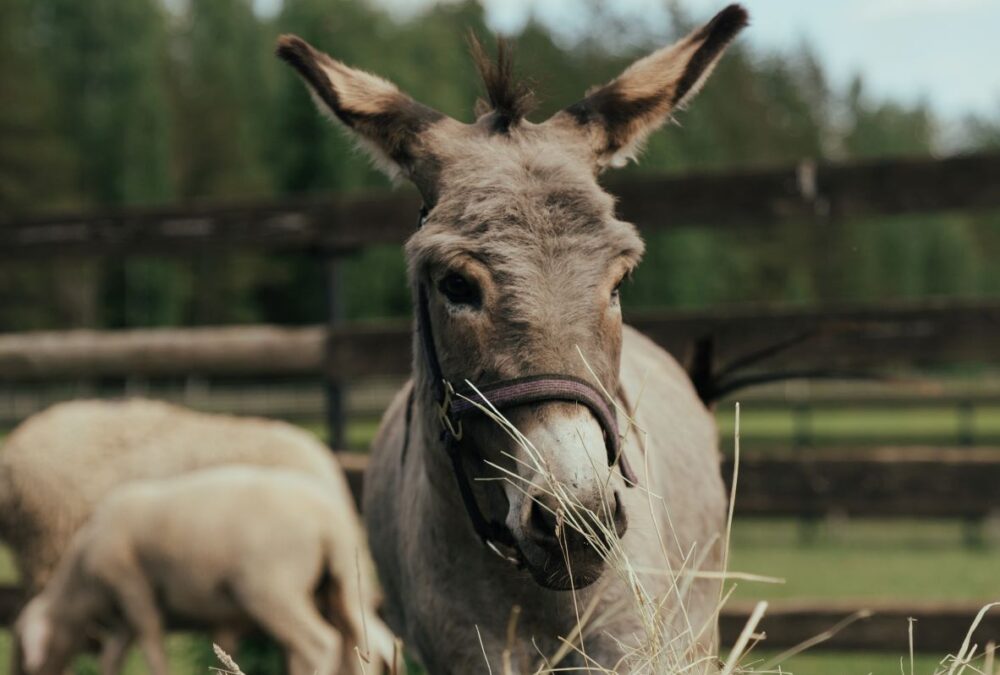This summer, our family took at trip to Guelph to visit the Donkey Sanctuary of Canada. This is a beautiful 100 acre farm, currently housing 61 equines (donkeys, mules and hinnies). It has been a home and refuge to 142 different animals since it started in 1992.
At the sanctuary, there are fascinating tours in which knowledgeable guides teach a great deal about donkeys. There are many qualities of the donkey that we value today: an undemanding nature, sure footedness, relative strength and hardiness.
These are characteristics we value in people. The famous “stubbornness” of donkeys refers to an instinct that donkeys have to stand still, when faced with a strange situation, and consider what is expected. If the donkey is being asked to do something that is not in its interest to do, the donkey will remain where it is. This may seem like stubbornness, but it may just be common sense. Any of us would do the same!
Like us, donkeys can “get in with the wrong crowd” and suffer as a result. When donkeys are raised with horses, they end up eating the diet of the horse, which is much too rich for them. They will quickly become obese and develop hoof problems. When our diet doesn’t match our exercise levels or dietary needs, it can have an equally detrimental effect on our health.
The part of the guide’s lesson that most struck me was the donkey’s response to injury. Horses live and travel in herds. There is an element to this that allows for one horse to be injured and the herd to protect them. Donkeys are more solitary creatures. They do not often have the luxury of having a herd to look out for them. As a result, when they are injured, they know how to ignore and “work through the pain”. Volunteers at the sanctuary need to be trained to spot injuries in the donkeys, because the donkey won’t let them know. They will ignore a wound until it has become dangerously overused and beyond the help of treatment.
Many of us can live like donkeys! We may not feel that we have a safety net at work, or a family or community that will help if we should be injured or incapacitated. We feel that we have to keep on going. The ensuing pattern of ignoring one’s own symptoms that can result is extremely detrimental to our health. This habit may form consciously or unconsciously. Either way, it takes a toll on our health. Donkeys will follow this pattern out of habit, even at the sanctuary when there are those that will look after them. Sometimes we might not recognize that there are others around us that will support us when we are injured, and we “suck it up” out of habit, when we don’t really need to.
Network Care and SRI are opportunities to connect with your body. They help you take stock of where and when tension has been stored, so you can become more effective at recognizing it and letting it go. It allows one look for the resources of the herd, instead of soldiering on in a solitary manner- ignoring the pain that is telling you to act.
While the donkey has many wonderful qualities of strength and hardiness that are worthy of imitation, I want to ask you this question. When it comes to your health, are you a donkey or a horse?

